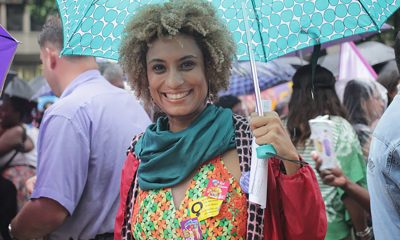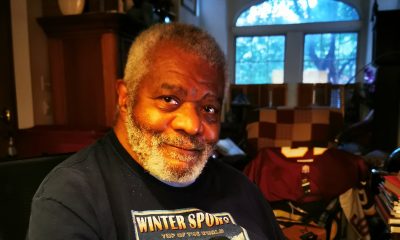Local
Bisexual Black man alleges abuse at Va. ICE detention center
Paul White has been at Caroline Detention Center since August 2020
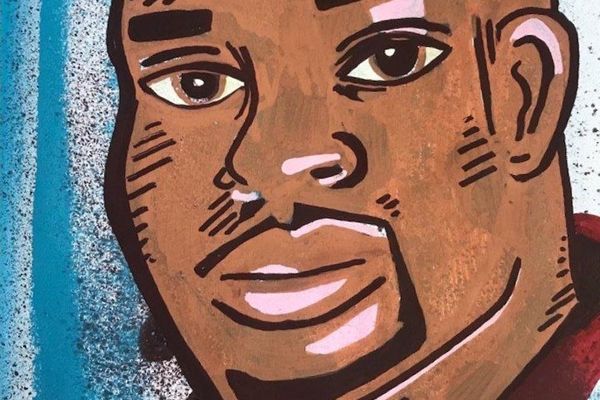
A bisexual Black man in U.S. Immigration and Customs Enforcement custody says he continues to suffer abuse at the Virginia detention center in which he is being detained.
Paul White has been in ICE custody at the Caroline Detention Center in Caroline County, which is roughly 70 miles south of D.C., since August 2020.
Amanda Díaz of Freedom for Immigrants, a group that seeks to end the detention of immigrants and asylum seekers, in a July 15 complaint she sent to Caroline Detention Facility Supt. Paul Perry, ICE Washington Field Office Director Matthew Munroe, Department of Homeland Security Officer for Civil Rights and Civil Liberties Katherine Culliton-González and DHS Inspector General Joseph V. Cuffari notes three specific “use of force” incidents against White.
The complaint notes three Caroline Detention Facility staffers on Nov. 5, 2020, brought White to a “rover security office” in the back of the dining hall after he complained about the quality of the food he received for dinner. White alleges one of the staffers then “grabbed” him “by his jumper collar and slammed him into the door, threatening that if he moved or said anything, he was going to kill him.”
White during a Nov. 11 telephone interview from the Caroline Detention Facility told the Washington Blade that the staffer assaulted him in an area without video surveillance. White said he filed a complaint with ICE, but “nothing happened.”
The complaint notes the same Caroline Detention Facility staffer who assaulted White last November “approached” him “in his dorm” on Feb. 10 and asked to speak to him.” White, according to the complaint, “refused” and the staffer “then asked to speak to him in the library, where [White] was under the impression that there were no cameras.”
The complaint says White “was afraid to go with” the staffer “to a place with no cameras and refused again.” The staffer then “put everyone in the dorm on lockdown and put [White] in segregation and charged him with “approaching” the staffer “in a threatening manner.” White, according to the complaint, returned to his dorm after the charge was dismissed.
The complaint states a Caroline Detention Facility staffer on May 10 “handcuffed my client and dragged him across the floor on his knees” after White challenged new rules about where detainees could sit in the dining hall.
“I was cuffed because I refused to walk because I was wrongfully targeted and I was like I’m not going to walk,” White told the Blade. “He started dragging me on the ground.”
White said the staffer then threatened to mace him.
“He pulled his mace out, had it over my face and threatened me if I don’t get up and walk, he was going to mace me,” said White. “I turned to him and I was like, ‘I’m in cuffs and you’re going to mace me.'”
White said the next morning he took 10 600 mg Ibuprofen pills in an attempt to die by suicide. White told the Blade that Caroline Detention Facility staffers placed him into an isolation cell, and the pills were among the personal belongings he said they brought to him.
“I was just tired of the abuse that I’ve been suffering by the hands of this facility and ICE,” said White. “I felt like I was worthless and I just wanted to end the pain.”
White described to the Blade another incident in which he said an ICE officer took his blankets and bedsheets away from him after he questioned why they demanded he get out of bed.
“They say we can’t be under our covers from 6:30 a.m. to 6:30 p.m.,” said White. “I told him that’s punishment and this is not prison, and he still went ahead and did it.”
White said he didn’t get his “stuff back until” 7 p.m. White told the Blade he reported the incident to both ICE and Caroline Detention Facility staffers, but “they did nothing about it.”
Freedom for Immigrants, the National Lawyers Guild’s National Immigrant Project and the Free Them All VA Coalition on Aug. 31 filed a separate complaint with Culliton-González on behalf of White and 18 other people who are currently in ICE custody at the Caroline Detention Facility or were previously held there.
“Since April 2021, we have received reports from these 19 individuals being held at Caroline Detention Facility who have called the Freedom for Immigrants (FFI) National Immigration Detention Hotline and individual advocates to report that they have suffered from physical and verbal abuse, contaminated food, denials of right to practice religion, medical neglect, denial of disability accommodations, unsanitary conditions, phone access restrictions, solitary confinement and/or COVID-19 negligence,” reads the complaint. “These reports demonstrate a pattern and practice of ongoing and blatant violations of the 2011 ICE Performance-Based National Detention Standards, with which Caroline Detention Facility is required to comply per their contract with ICE.”
White told the Blade that he tested positive for COVID-19 last November. He said he is now vaccinated, but stressed facility staffers don’t wear face masks and don’t properly clean the detention center.
White also said he had a “mental breakdown” a few weeks ago and a Caroline Detention Facility staff person told him “you need to speak with me first” when he asked to speak with a mental health professional and an ICE officer.
“I said, ‘No, you’re not mental health and you’re not ICE,” said White, recalling what he said he told the staff person. “He told me that I’m in his jurisdiction. I said jurisdiction. I said man, listen, you’re not going to put no cuffs on me like the last time you did and dragged me.”
White told the Blade that he was eventually allowed to see a mental health professional in the infirmary, but the Caroline Detention Facility staffer nevertheless wrote him up and placed him in segregation. White said he was found not guilty, but the staffer who filed the complaint against him later threatened him.
“The captain looked at me and said I was lucky because if it were him he would have hurt me,” said White.
White also told the Blade that his overall physical health has deteriorated since he arrived at Caroline Detention Facility.
White fears deportation to ‘homophobic’ homeland
White is from a country that he asked the Blade not to identify, but he said consensual same-sex sexual relations remain criminalized there.
He arrived in the U.S. in 2001 after his mother sponsored him for a green card.
White lived in New York for several years. He worked as a cable company technician before he began an entertainment company and opened a restaurant. White, who has a daughter, moved to Henrico County, Va., in 2012.
He said he was arrested in Chesterfield County, Va., but did not tell the Blade why.
“Basically, as a Black man I was targeted and the justice system basically sent me to prison,” said White.
White has asked the U.S. to grant him protection under the U.N. Convention against Torture due to the persecution he said he would suffer in his home country because of his sexual orientation.
An immigration judge in May ruled against White.
White appealed the ruling to the Virginia-based Board of Immigration Appeals, but it dismissed his case last week.
“Mr. White is currently exploring options to continue pursuing his case,” White’s former attorney, Leanne Gale, told the Blade in an email.
White told the Blade he is “pretty much scared to my gut” about being deported to his home country.
“I’m going back to a country that I left 20 years ago and I have no financial support,” he said. “Basically, I have to go back to the same place where they’re waiting for me, that I’m going to be harmed.”
White further described his country as “homophobic.”
“The laws stated that if you’re gay or lesbian, you’re supposed to be locked up and persecuted,” he said. “I see guys got killed, burned and beaten with car tires. I’ve heard of people who got shot and the police’s not going to do nothing about it … the communities govern themselves. When you’re been exposed as being gay, lesbian or bisexual, even your mom, your dad, your cousins, your uncles, they’re all against you and you potentially might not be killed by a stranger. You might be killed by your own parents.”
ICE ‘has zero tolerance for all forms of abuse’
ICE spokesperson James Covington in a statement he sent to the Blade on Monday did not specifically comment on White’s allegations. Covington, however, stressed ICE “has zero tolerance for all forms of abuse, assault, or neglect against individuals in the agency’s custody. Furthermore, ICE practices strict adherence to all federally mandated COVID-19 protocols at all of our facilities.”
“ICE focuses on prevention and intervention with specific requirements for detainee supervision, classification, and background checks for staff and contractors,” said Covington. “Moreover, ICE works extensively to ensure that all detainees are aware of how to make an allegation of abuse or assault, that allegations are treated seriously, that detainees are protected and provided all required services, and that thorough investigations are completed. The agency has implemented policies and procedures to establish an environment where staff and detainees are encouraged and feel comfortable reporting allegations and do not face any retaliation for bringing to light concerning behavior. ICE and facility staff receive specialized training to appropriately respond to all allegations in a professional and timely manner.”
White in a follow-up statement to the Blade said he has “not personally seen any investigation” done in response to his complaints.
“I tried to press charges and they wouldn’t help me,” he said. “They do not take any of our complaints seriously.”
LGBTQ immigrant groups rally behind White
The Queer Detainee Empowerment Project, the Black LGBTQIA+ Migrant Project and La ColectiVA have launched a campaign that urges ICE to release White. The groups have also been adding money to White’s commissary account at the Caroline Detention Facility.
Uchechukwu Onwa, co-director of the Queer Detainee Empowerment Project, spent three months in ICE custody in Atlanta in 2017 after he arrived in the U.S. from Nigeria. Onwa on Tuesday told the Blade during a telephone interview that he is “not surprised” by White’s allegations.
“This is something that we see happen a lot with immigrant communities, but also it’s happened more within the LGBTQ immigrant community and then being Black as well, so this is all linked to anti-Blackness, xenophobia and racist attack,” said Onwa.
June Kuoch, a Queer Detainee Empowerment Project organizer, agreed.
“Mr. White’s case is not an anomaly or an exception within the system, but rather the norm,” they said.
“As a Black, bisexual man, Mr. White has been the target of escalated abuse and violence while in detention,” Díaz told the Blade in a statement.
She added White “continues to resist, organize and advocate for the release of himself and others despite ICE continuing to target him.”
“His leadership and willingness to speak out in the face of ongoing abuse is a salient reminder that no matter where someone came from or who we are, everybody’s life is of value and worthy of justice, safety, and dignity,” said Díaz.
White told the Blade “the world needs to know what’s been going on behind these walls when we’ve been detained.”
“Through my story they can understand and know that ICE itself they have been violating the (U.N.) Convention against Torture, and this is what they’ve been doing,” he said. “They’ve been torturing us mentally, and sometimes physically.”
Virginia
Norfolk transgender resource center vandalized
Anti-trans graffiti spraypainted onto Southeastern Transgender Resource Center’s windows
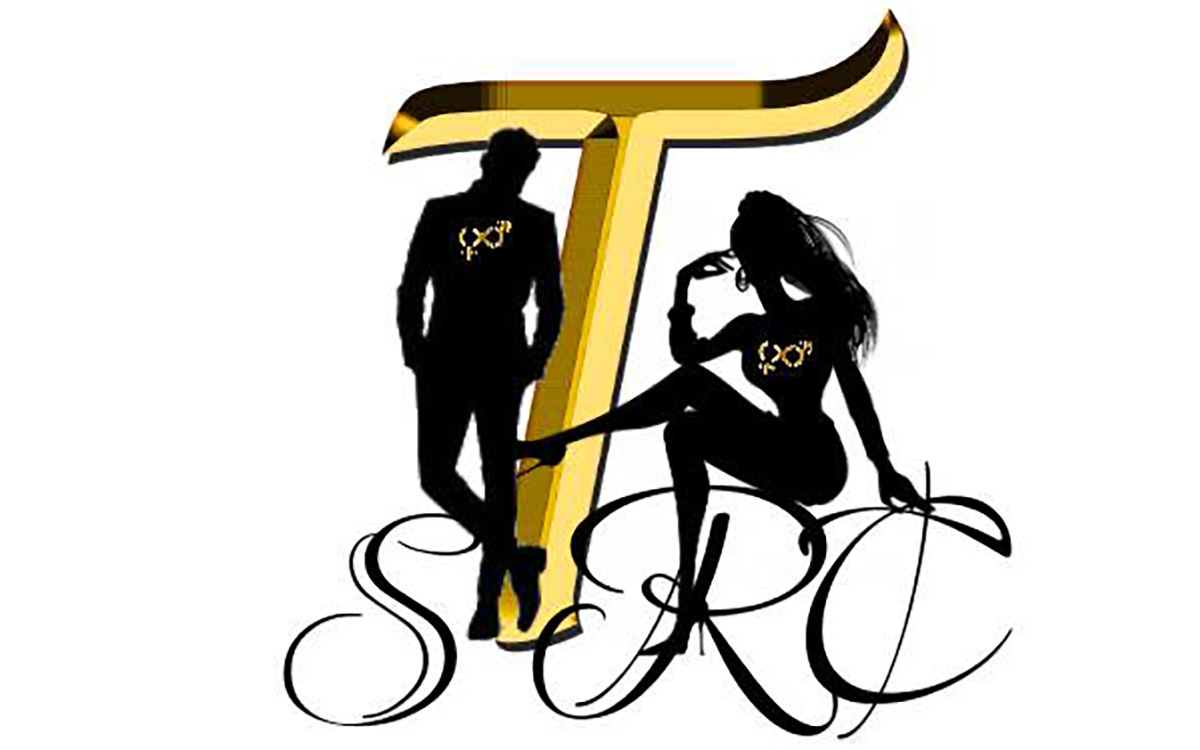
The Norfolk Police Department is investigating the vandalism of a transgender resource center’s building.
Tarena Williams, founder of the Southeastern Transgender Resource Center, told WAVY that someone spraypainted anti-trans graffiti on the windows of her organization’s offices on Sunday or Monday morning. Williams told the Hampton Roads television station that seeing the messages was like “walking into hell.”
“I opened up STRC, even the Lamina House,” she told WAVY. “I opened up that to get away from those types of words. This is a place you can come to get away from that, but to see that sprayed over the window. It’s kind of like you are walking into hell. … To be honest, I was like in shock.”
Authorities are investigating the vandalism.
West Virginia
Appeals court strikes down W.Va. transgender athlete ban
Ruling finds law violates students’ constitutional rights, Title IX
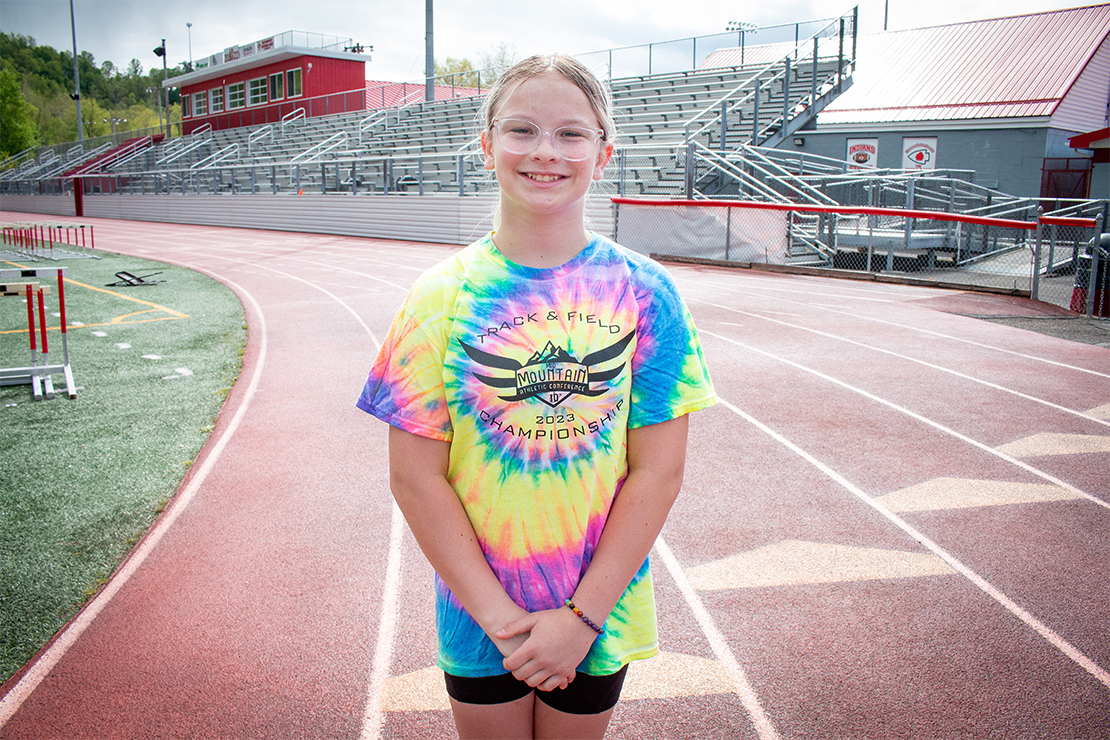
BY LORI KERSEY | The 4th U.S. Circuit Court of Appeals has struck down West Virginia’s ban on transgender athletes, finding the law violates trans students’ rights under the Equal Protection Clause of the constitution and Title IX, a federal civil rights law prohibiting discrimination based on sex in education programs.
The case, B.P.J. vs. the West Virginia Board of Education, was filed in May 2021 on behalf of Becky Pepper-Jackson, a 13-year-old trans middle school student and track athlete who would be barred from participating if the ban is upheld. Pepper-Jackson is represented by the American Civil Liberties Union, the American Civil Liberties Union of West Virginia and Lambda Legal.
In April 2021, West Virginia Gov. Jim Justice signed into law a bill prohibiting trans women and girls in the state from participating in sports that align with their gender identity. The U.S. Court of Appeals in February 2023 blocked the state from removing Pepper-Jackson from her school’s track and field team as legal advocates appealed a lower court’s ruling upholding the ban.
In Tuesday’s ruling, Judge Toby Heytens wrote that offering Pepper-Jackson the “choice” between not participating in sports and participating only on boys teams is not a real choice.
“The defendants cannot expect that B.P.J. will countermand her social transition, her medical treatment, and all the work she has done with her schools, teachers and coaches for nearly half her life by introducing herself to teammates, coaches and even opponents as a boy,” the judge wrote.
“By participating on boys teams, B.P.J. would be sharing the field with boys who are larger, stronger, and faster than her because of the elevated levels of circulating testosterone she lacks,” he wrote. “The Act thus exposes B.P.J. to the very harms Title IX is meant to prevent by effectively ‘exclud[ing]’ her from ‘participation in’ all non-coed sports entirely.”
In a statement Tuesday, Joshua Block, senior staff attorney for the ACLU’s LGBTQ and HIV Project, called the court’s ruling “a tremendous victory for our client, transgender West Virginians and the freedom of all youth to play as who they are.”
“It also continues a string of federal courts ruling against bans on the participation of transgender athletes and in favor of their equal participation as the gender they know themselves to be,” Block wrote. “This case is fundamentally about the equality of transgender youth in our schools and our communities and we’re thankful the 4th Circuit agreed.”
“We hope today’s ruling sends a message of hope to the trans youth of West Virginia,” Aubrey Sparks, legal director of the ACLU of West Virginia, said in the statement. “And a message of warning to politicians who continue to dehumanize this vulnerable population.”
West Virginia is one of 21 states that have banned trans student-athletes over the last three years, according to the ACLU.
In a statement Tuesday, West Virginia Attorney General Patrick Morrisey vowed to defend the ban and said he is “deeply disappointed” in the decision.
“The Save Women’s Sports Act is ‘constitutionally permissible’ and the law complies with Title IX,” Morrisey said. “I will keep fighting to safeguard Title IX. We must keep working to protect women’s sports so that women’s safety is secured and girls have a truly fair playing field. We know the law is correct and will use every available tool to defend it.”
******************************************************************************************

Lori Kersey is a reporter with a decade of experience reporting in West Virginia. She covers state government for West Virginia Watch.
******************************************************************************************
The preceding article was previously published by the West Virginia Watch and is republished with permission.
Nonprofit, nonpartisan, independent journalism not hidden behind a paywall. Mountaineers are always free, and so is West Virginia Watch.
West Virginia Watch is part of States Newsroom, the nation’s largest state-focused nonprofit news organization.
District of Columbia
Reenactment of first gay rights picket at White House set for April 17
Event marks 59th anniversary of historic push for gay rights in nation’s capital
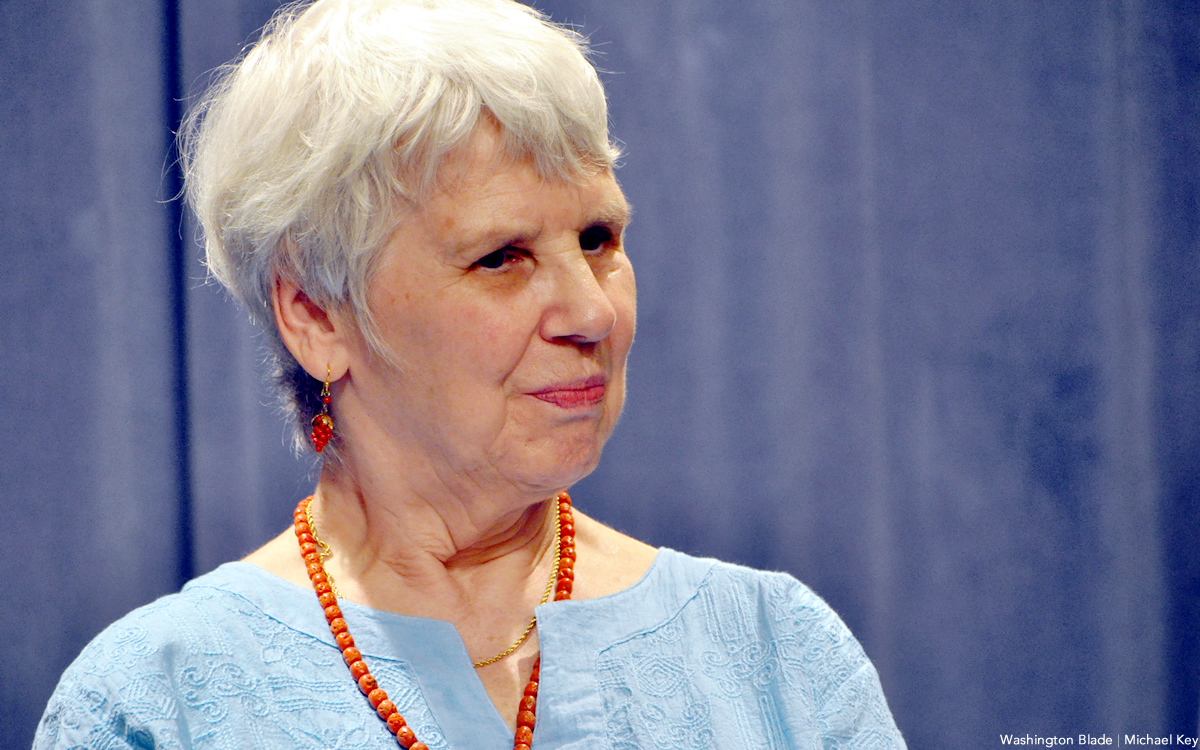
D.C.’s Rainbow History Project announced it will hold a reenactment on Wednesday, April 17, of the historic first protest for gay rights in the form of a picket line in front of the White House that took place on that same day in 1965.
In a statement released last week, Rainbow History Project says the reenactment will mark the 59th anniversary of an event that is credited with bringing attention for the first time to the federal government’s longstanding discrimination against a minority group referred to then as homosexuals or gays and lesbians.
The statement notes that the 1965 event was organized by the Mattachine Society of Washington, D.C., the first politically active LGBT organization in the nation’s capital founded by local gay rights pioneer Frank Kameny.
“The picket took place on the White House sidewalk, Lafayette Park, 1600 Pennsylvania Ave., on April 17, 1965,” the statement says. “For exactly one hour, from 4:20 p.m. to 5:20 p.m., members of the Mattachine Society of Washington walked in a circle, non-stop, in silence, carrying posters of their demands,” the statement continues.
“The White House picket is the origin story for public demonstrations for gay rights in the U.S., and the origin story for Pride Marches and the annual LGBTQ Pride celebrations which occur across the globe,” according to the statement.
It says those picketing in the April 1965 event, which included Kameny and longtime local D.C.-area lesbian activist Lilli Vincenz, both of whom held doctorate degrees, called on the government to adopt the Mattachine Society of Washington’s four major demands: an end to the exclusion of homosexuals from federal government employment; an end to the ban on gays and lesbians from serving in the U.S. military; an end to the “blanket denial” of security clearances for gay people; and an end to the “government refusal to meet with the LGBTQ community.’
Among those who chose not to respond to the request for a meeting was President Lyndon B. Johnson, who occupied the White House at the time of the 1965 picketing.
Vincent Slatt, the Rainbow History Project’s director of archiving and one of the lead organizers of the April 17 reenactment event, said the event is aimed, among other things, at drawing attention to how far the LGBTQ community has come since 1965. He said the event is not in any way a protest of the administration of President Joe Biden and Vice President Kamala Harris, who Slatt called staunch supporters of the LGBTQ community.
“We are just reenacting this historical event and pointing out how far we’ve come,” Slatt told the Washington Blade. “If you think about what it means in 1965 when these people were protesting and LBJ would not even respond to them. And now, we are at a place where Vice President Harris speaks on a stage at Capital Pride.”
The Rainbow History Project statement notes that the reenactment event will also be held in honor of Kameny, who died in 2011, and Vincenz, who passed away in 2023, both of whom participated in a similar reenactment event in 2008.
Among those who will be participating in this week’s reenactment on April 17 will be longtime local LGBTQ rights activist Paul Kuntzler, who is the only known surviving person who was among the White House picketers at the April 1965 event. Kuntzler will be carrying a replica of his own picket sign he held at the 1965 event, the statement says.
It says Rainbow History Project volunteers will also carry replicas of the original protest signs and hand out literature explaining the picket to passersby and tourists.
Similar to the 1965 event, the reenactment picketing at the White House will begin on April 17 at about 4:15 p.m., according to Slatt of the Rainbow History Project.
-

 Africa3 days ago
Africa3 days agoCongolese lawmaker introduces anti-homosexuality bill
-

 Colorado5 days ago
Colorado5 days agoFive transgender, nonbinary ICE detainees allege mistreatment at Colo. detention center
-

 World3 days ago
World3 days agoOut in the World: LGBTQ news from Europe and Asia
-

 Real Estate4 days ago
Real Estate4 days agoBoosting your rental property’s curb appeal

